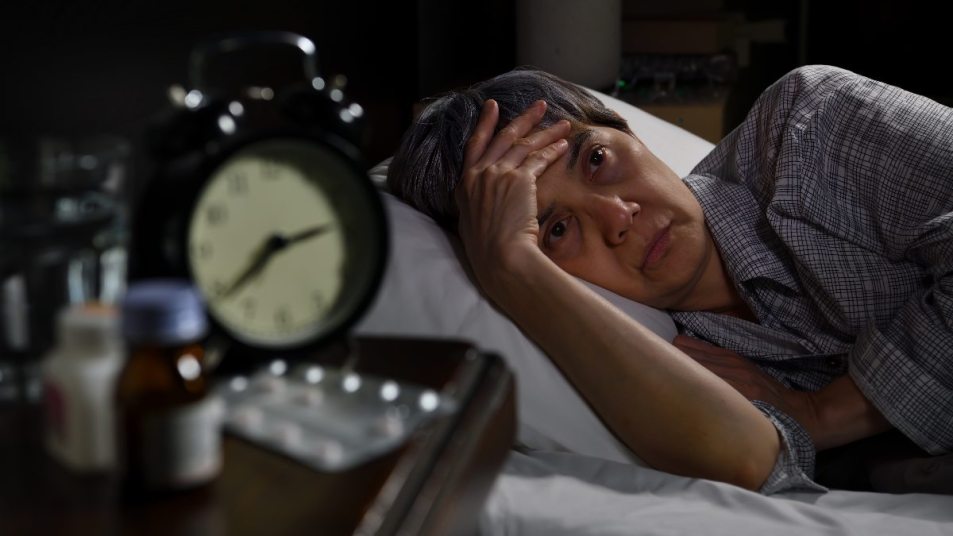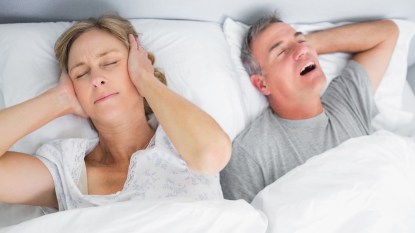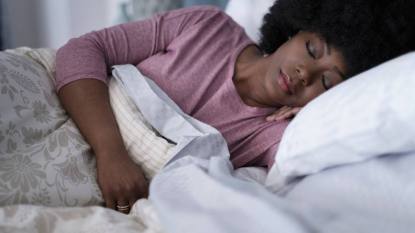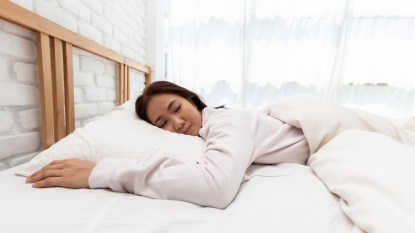Misdiagnosis of Sleep Apnea: What Every Woman Over 50 Should Know About Her Sleep Health
Snoring is just for the men...or is it?

If you’ve ever woken up in the middle of the night gasping for breath, heart racing — or you’ve kept someone else awake with your loud snoring and general restlessness — you may have a condition that doctors often fail to consider for women over 50: sleep apnea. Commonly thought of as a man’s disease, sleep apnea is a disorder that causes you to stop and start breathing while you sleep. It starves your body of oxygen and leads to hypoxia, or low levels of oxygen in your body tissues. Low O2 levels can in turn cause confusion, restlessness, difficulty breathing, rapid heart rate, and blue-tinged skin. And sleep apnea is frequently misdiagnosed — especially when it comes to women.
But this disorder can be difficult to diagnose, because many other symptoms of sleep apnea — the ones suffered by women in particular — mimic hormonal imbalances or menopause. These may include fatigue, insomnia, headaches, depression, and lack of energy. Here is what you need to know about sleep apnea, from the kind of person who is most likely to be diagnosed to treatment options you can consider.
Doctors think men are more likely to have sleep apnea
It’s true that men are diagnosed with sleep apnea more often than women. A research paper from Sleep Medicine Reviews suggests that men are more prone to the condition because of certain physical characteristics. For instance, men tend to have a longer oropharynx — the space at the back of the mouth that includes the back of the tongue, the soft palate, the side and back walls of the throat, and the tonsils. This longer space in men’s throats may increase the likelihood that their upper airway collapses while sleeping, causing sleep apnea.
Weight also has something to do with it. According to the same research paper, overweight men tend to have more fat in the neck, tongue, and areas around the airway, which could obstruct the passage. But, as the study authors acknowledge, some research has contested this idea. Certain scientists have argued that there aren’t any important differences in terms of where men’s versus women’s bodies store fat.
More recently, experts have uncovered another potential reason for the diagnosis gap between men and women: Many doctors don’t think that women match the profile of a sleep apnea patient — although it seems they are often mistaken.
Women are more likely to have sleep apnea misdiagnosed
Research from The Ochsner Journal reports that sleep apnea is under-recognized and under-diagnosed, regardless of gender. Still, women are more likely to get misdiagnosed. To quote a BioMed Research International paper, “while the prevalence of the condition may be lower in women, proportionally fewer women receive a correct diagnosis.”
In addition, some research is even contesting the idea that sleep apnea is more prevalent in men. A study in the European Respiratory Journal found that 50 percent of female participants between 20 and 70 years old suffered from mild to severe sleep apnea. Age, obesity, and hypertension increased the likelihood of a diagnosis (the same is true in men).
So, why is the condition so under-diagnosed in women? Some medical professionals think that doctors look for only a specific set of symptoms. Men often report obvious symptoms, such as snoring, gasping, and pauses in breathing while they sleep. On the other hand, women are more likely to complain of fatigue, insomnia, headaches, depression, and lack of energy.
In addition, research from the Journal of Sleep Medicine and Disorders states that the condition is even more prevalent in women who are menopausal and postmenopausal. Hormonal fluctuations can trigger episodes of sleep apnea, intertwining with menopause symptoms and making everything all the more difficult to diagnose.
Take charge of your sleep health
If you think you’ve been misdiagnosed and need treatment for sleep apnea, get a second opinion. You don’t want to wait to get treated; this breathing condition is linked to poor cognitive health and Alzheimer’s.
Before you visit the doctor, collect evidence that you may be suffering from sleep apnea, and take notes on your symptoms. Consider your family history, too. For instance: Tell your doctor if your mother or father had sleep apnea or conditions such as obesity, high blood pressure, or type 2 diabetes.
If your doctor finds it necessary, you may be asked to undergo a home sleep study. This will help your doctor see the number of times during the night that you stop and start breathing. And remember: It’s not just a man’s disease. So make sure you speak up if your sleep patterns are disturbed or if you suspect your symptoms match those described here. (Click through for details on another sleep sapper: sleep bruxism)













